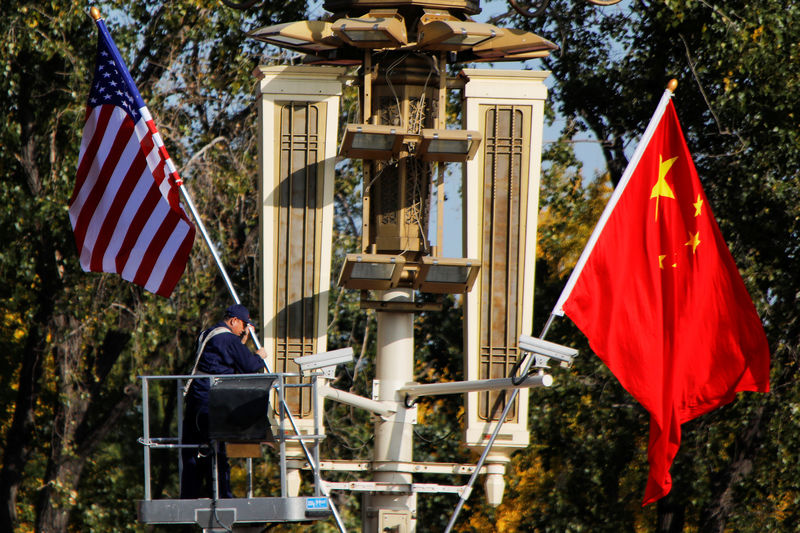By Michael Martina and David Lawder
BEIJING/WASHINGTON (Reuters) - U.S-China trade talks this week were heavy on details but short on progress as U.S. negotiators outlined cases of American firms harmed by Chinese practices and China argued it was meeting its WTO obligations, people familiar with contents of the discussions said.
The two days of talks in Washington led by mid-level officials did little to resolve a worsening trade spat between the world's two biggest economies and ended on Thursday without a joint statement.
Washington separately held hearings during the week on another round of proposed tariffs on $200 billion worth of Chinese imports that appear increasingly likely to take effect in late September or early October.
And while factions on the U.S. side have given conflicting signals on how hard to press Beijing during the trade dispute, officials from the Treasury Department, which led the talks, and the U.S. Trade Representative, which has taken a harder line, were aligned in their messaging, the people said.
The talks took place as the two sides followed through on threatened tit-for-tat tariffs on $16 billion worth of the other's goods. Beijing has filed a complaint with the World Trade Organization about the U.S. duties.
During the talks, Chinese negotiators repeatedly invoked what they said was Beijing's compliance with WTO rules, an argument that did not impress the U.S. side.
One of the sources described the U.S. response as: "We're not going to care about the WTO as you fuel overcapacity, wreck industries and steal IP (intellectual property). We're not going to sit on our hands."
All of the sources declined to be identified given the sensitivity of the matter.
Washington is demanding Beijing improve market access and intellectual property protections for U.S. companies, cut industrial subsidies and slash a $375 billion trade gap.
In a brief statement on Friday, China's commerce ministry said both sides had a "constructive" and "candid" exchange over trade issues, and will stay in touch on the next steps.
U.S. officials, including President Donald Trump, had downplayed expectations for the talks.
No further talks have been announced.
Chinese negotiators brought up the lack of U.S. market access for items including Chinese cooked chicken, one of the exports that was agreed last year as part of a 100-day plan, demonstrating Beijing is still seeking some U.S. concessions in the talks.
"The Chinese are stuck in the mindset that they want something in return. That's not going to fly in Washington anymore," another source briefed on the talks said.
U.S. negotiators brought up the case of Micron Technology (O:MU), which was temporarily barred by a Chinese court in July from selling its main semiconductor products in China, citing violation of patents held by Taiwan's United Microelectronics Corp (UMC) (TW:2303).
In December, Micron had filed a civil lawsuit in California accusing UMC and its state-backed Chinese partner of stealing technology.
One of the people said the talks focused on systemic issues related to Washington's "Section 301" probe into China's intellectual property and technology transfer practices.
There was little, if any, focus on more purchases by China of U.S. commodities. During the previous round of talks, in June in Beijing, U.S. Commerce Secretary Wilbur Ross unsuccessfully sought to secure major Chinese purchases of U.S. soybeans and liquefied natural gas.
In an editorial late on Friday, the Global Times, a nationalist Chinese tabloid run by the ruling Communist Party's People's Daily, said it was clear that the two days of talks did not yield significant progress.
"An escalation in the US-China trade war is becoming obvious," it said, citing U.S. congressional elections in November as a key reason for the tough U.S. stance.

"So far, neither side shows signs of extending the trade war to other areas. We hope that both sides can stick to the 'rule' and keep the trade issue within limits," it said.